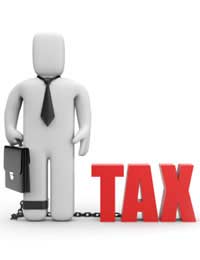I've Got an HMRC Tax Demand: What Do I Do?

Thousands of taxpayers have had unpleasant letters landing on their doorsteps in recent months. As a result of mistakes made at HM Revenue and Customs (HMRC), many people have received demands for underpaid tax – demands that sometimes run to thousands of pounds.
Receiving a demand of this sort is obviously a shock. But it is important that you don’t panic. In some situations, you may not have to pay it.
Why am I Getting a Tax Demand?
Thousands of people have received tax demands from HM Revenue and Customs following mishaps in Tax Offices across the country.In a series of Benny Hill-esque mishaps, thousands of taxpayers had their Tax Code miscalculated – meaning that they have ended up paying too little tax. HMRC is now in the process of writing to those taxpayers, demanding that they pay back the tax that they didn’t realise they owed in the first place. Confusing, yes?
This Doesn’t Seem Fair...
No, it isn’t. Many taxpayers are receiving demands for thousands of pounds, and many simply cannot pay it. You are receiving a financial shock because of HMRC’s incompetence.HMRC made the problem worse, after their head apparently refused to apologise for the mistake. Although they have since changed their stance, they still maintain that the country is not in a financial position to simply forget about the unpaid tax.
Can I Get it Written Off?
If you receive a tax demand from HMRC, do not panic. In some circumstances, you may be able to have the demand written off.Broadly speaking, HMRC is legally obliged to issue a demand within 12 months of the end of the tax year in which it realised that you had underpaid your tax. The only exception to this is cases in which HMRC had not been provided with the information they needed to properly calculate your tax code.
If you are confident that HMRC had all the information they needed, you can apply for an ‘extra statutory concession’. You can do this by calling HMRC and asking for an ESC A19. It is also worth noting extra statutory concessions apply to those with Capital Gains Tax demands, as well as those with income tax demands.
What if I Have to Pay it?
If HMRC acted sufficiently promptly in issuing a demand, you will probably have to pay it. The way in which you pay will depend on the amount you owe, and your employment situation.If you owe less than £2,000, HMRC will try to alter your tax code in order for it to be deducted from your income through PAYE. If you owe more than £2,000, you will need to negotiate a payment plan with HMRC. They will normally expect the sum to be paid in several instalments, over several years. They will take a range of factors into account when deciding on how long you will have to pay.
As with all tax matters, it is important that you act promptly if you receive a tax demand. It will not just go away. The longer you leave it, the worse it will get. If you are in any doubt, or if you simply cannot pay the demand, seek advice from your local Citizens Advice Bureau.
- Students: Why the P38s Form is Vital
- Getting Personal Help With Your Tax Affairs
- What is My Tax Spent On?
- How To Claim Back Overpaid Tax
- What You Need To Know About Expenses Payments
- Allowable Expenses and Deductions
- Personal Allowances and Allowable Interest
- Are Social Security Benefits Taxable?
- Income Tax and Pensioners
- Income Tax and Students
- What is Income Tax?


Re: Claiming Tax Relief on Mileage
(palimpsests). In the XIII-XV centuries in
Re: Claiming Tax Relief on Mileage
Hi all, advice please. I have started work on PAYE recently in addition to my self employment. As part of my PAYE employment I…
Re: What Does Road Tax Pay For?
You need to positively explain to me how this benefits me in respect of this bill. Your website does not and of course the roads…
Re: What Does Road Tax Pay For?
What do motorists actually get from paying the "road tax" fee? I am fed up with beaueacratric measures, where councellors sit on…
Re: Should I be Paid Mileage Allowance?
Actually, I somewhat disagree with the guidance being provided in this instance. Perhaps when considering ONLY…
Re: Paying for Training Can I Claim Tax Allowance?
I am sending my son privately to have a 'Educational Psychology Assessment' because of timing concerns. Can…
Re: Payment of Pensions
How do I change my state pension from 4 weekly to weekly
Re: How Will My Second Job Be Taxed?
I have 2 jobs cleaner at club on a morning on which I don't pay tax but I work at factory on backshift as cleaner and I get…
Re: How Will My Second Job Be Taxed?
I have a main job salaried at 18,500 per year and a second job at £6.50 per hour working around 30/40 hours per week. How…
Re: What Is A Close Company And How Does It Work?
I am a director in a close company through my leasehold purchase of a flat in a Victorian house, their are 5…